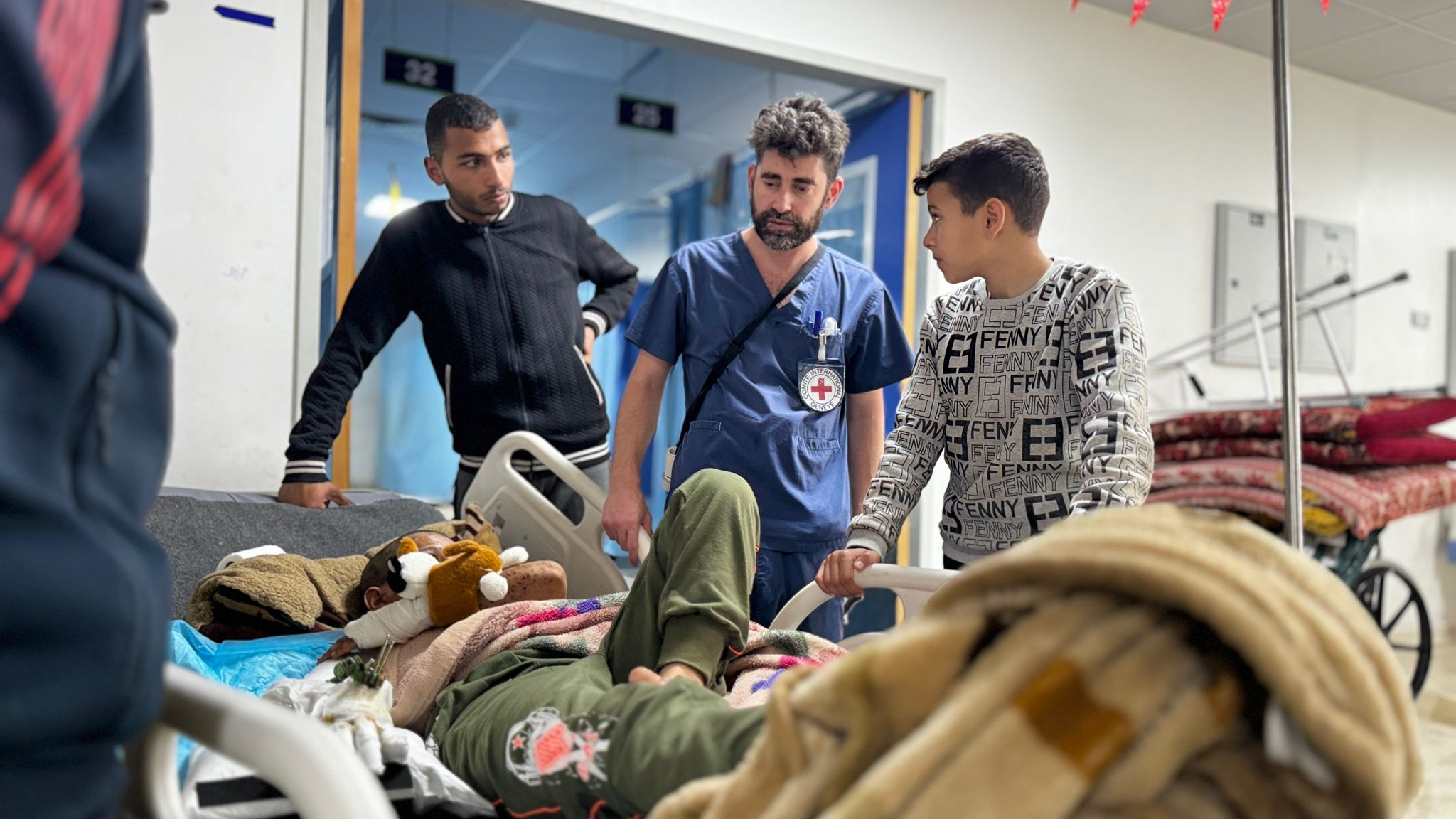

The findings of the Inspector-General of the Australian Defence Force Afghanistan Inquiry Report, commonly known as the Brereton Report, highlight the importance of international humanitarian law (IHL). These laws, also known as the laws of war or the law of armed conflict, inform behaviour and decisions made on the battlefield and it is essential all parties to armed conflict understand and comply with them.
Australian Red Cross has a responsibility to ensure that all Australians understand and, where applicable, apply and interpret these laws in accordance with Australia’s obligations under the Geneva Conventions of 1949, their Additional Protocols of 1977 and all other relevant instruments.

Perhaps one of the most important questions is, ‘how will we live together after it is all over?’ After the shooting has stopped and the bombs are silenced. After the soldiers have retreated, the dead have been buried, and prisoners of war released.
The answer to that question is undoubtedly through the preservation of fundamental human values. How we achieve this is a delicate balancing act of two seemingly contradictory principles – humanity and military necessity. On the one hand, an expectation that humane limits are placed on conduct in warfare and, on the other hand, a recognition that overcoming an adversary may involve death and destruction. These principles show us that while the goal is to win the war, it is never to win at all costs.
Balancing the principle of humanity against the grim realities of war serves to minimise suffering and limit long-term destruction, so that those affected can one day learn to live together again in peace. To be successful in this balancing act, the adoption of rules and restrictions that dictate the behaviours and actions of warring parties is paramount.
Today, the rules and restrictions of IHL work to protect those not or no longer participating in hostilities, such as wounded soldiers, civilians and military medics, and to limit the means and methods of warfare.
While modern IHL is said to have begun in the mid-19th century, rules and restrictions in war have existed for as long as war itself.
In 500 B.C. China, Sun Tzu wrote about the importance of treating captured soldiers in a humane manner: “The captured soldiers should be kindly treated and kept.”
In 200 B.C. India, the Code of Manu urged against the use of certain types of weapons in battle: “When he fights with his foes in battle, let him not strike with weapons concealed (in wood), nor with (such as are) barbed, poisoned, or the points of which are blazing with fire.”
And in 1949, Geneva, countries from around the world came together to accept and adopt four Geneva Conventions that stood for the regulation of conduct in war and a limitation of its effects on those not or no longer taking part in the fighting. This historical and now-universal commitment to the notion that there should be limits to how war is waged represents a common thread – throughout time and across cultures and religions – of humanity, even in the most challenging of circumstances, or darkest of hours.
This delicate balance of humanity and military necessity weaves its way through IHL and humanitarian action.

This balancing act can also be seen in action in humanitarian protection. For example, when the International Committee of the Red Cross (ICRC) and Syrian Arab Red Crescent were able to act as neutral humanitarian intermediaries in December 2016. Together they coordinated the evacuation of 35,000 civilians from Aleppo, Syria, including 100 critically wounded and sick patients prior to military bombardment. It has also meant that, last month, more than 1,000 families could be reunited with loved ones who had been detained during the conflict in Yemen. It was the largest ICRC and Saudi Red Crescent operation of its kind in the five-and-a-half-year war.
The need for this balancing act manifests most clearly on the battlefield, but the universal commitment to the notion that there must be humanity in war extends far beyond this. This commitment is perhaps most clearly articulated in the obligation on countries to respect and ensure respect for the Geneva Conventions and their Additional Protocols, not only by their armed forces but any individuals or groups under their control.
This obligation, found in common Article 1 to the Geneva Conventions, is twofold. Firstly, there is a negative duty – an undertaking to ensure one does not ‘encourage, nor aid or assist in violations of the Conventions’. Secondly, there is a positive duty, to ‘take proactive steps to bring violations of the Conventions to an end and to bring an erring Party to a conflict back to an attitude of respect for the Conventions’. The latter, coupled with established norms of international law also requires governments to investigate and prosecute serious violations of IHL, including war crimes.
The fact that every country in the world has signed the Geneva Conventions demonstrates that no one is outside the protections or obligations of these laws. This, too, debunks the myth that ‘all is fair in war,’ when in reality, the opposite is true.
After all, the laws of war are not about how you treat your friends, but how you treat your enemies.

Humanitarian aid workers like Australian Red Cross delegate JP Miller rely on international humanitarian law for protection when deploying into conflict zones.
Red Cross pays our respects to the Aboriginal and Torres Strait Islander custodians of the country where we work, and to Elders, past, present and emerging.
Learn about our Reconciliation Action Plan and how we can all make reconciliation real.
This website may contain the images, voices or names of people who have passed away.


© Australian Red Cross 2026. ABN 50 169 561 394
